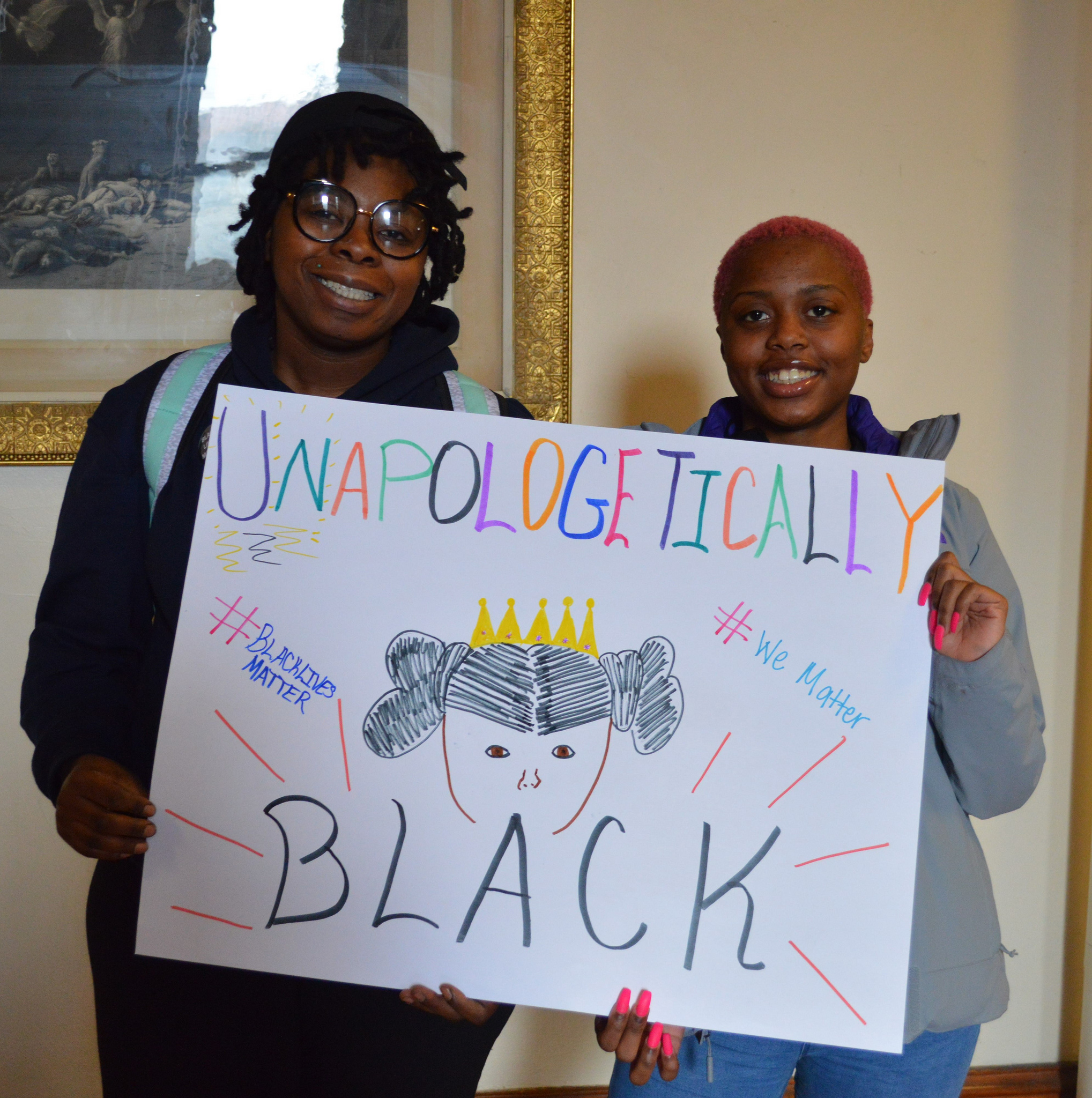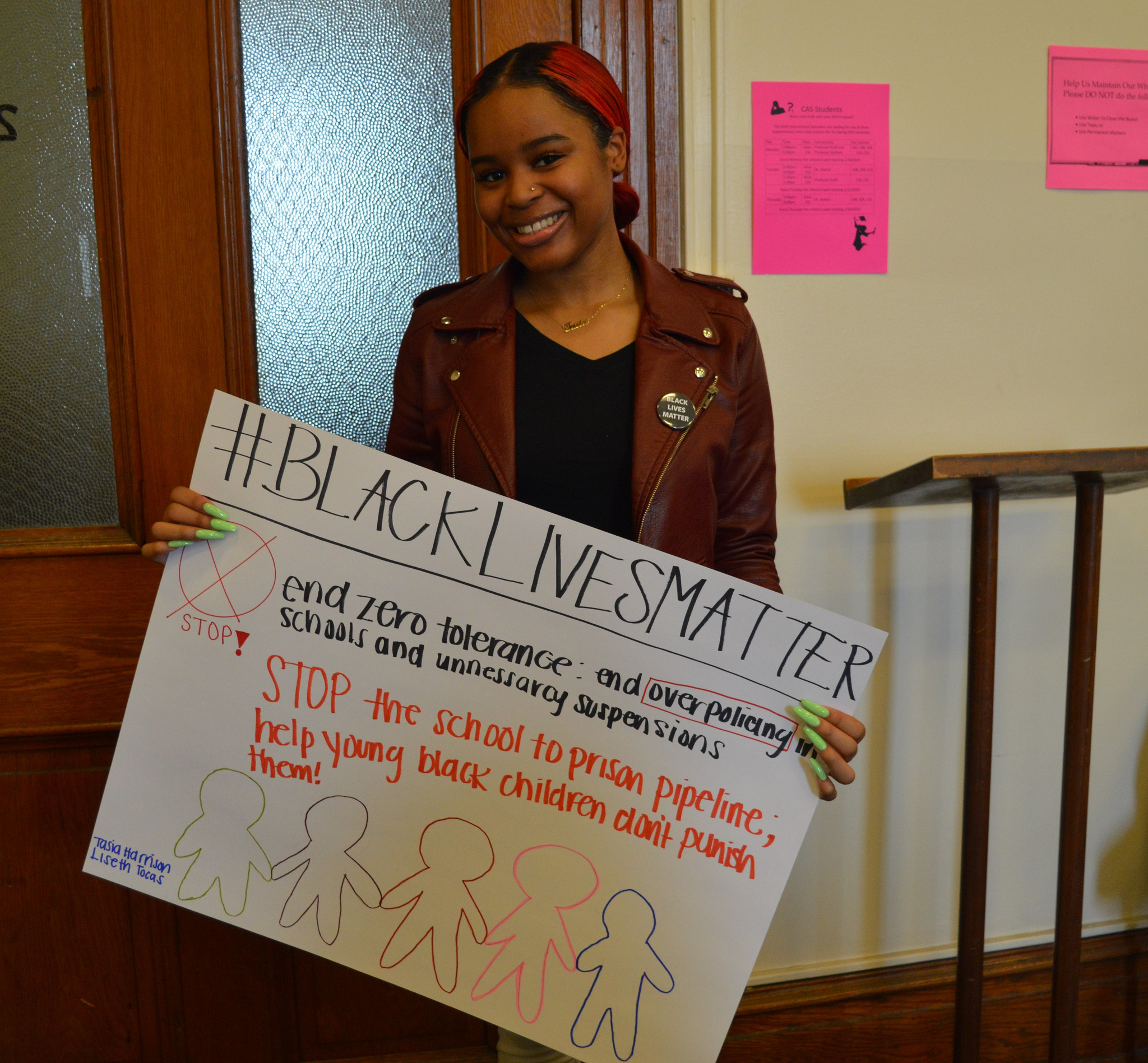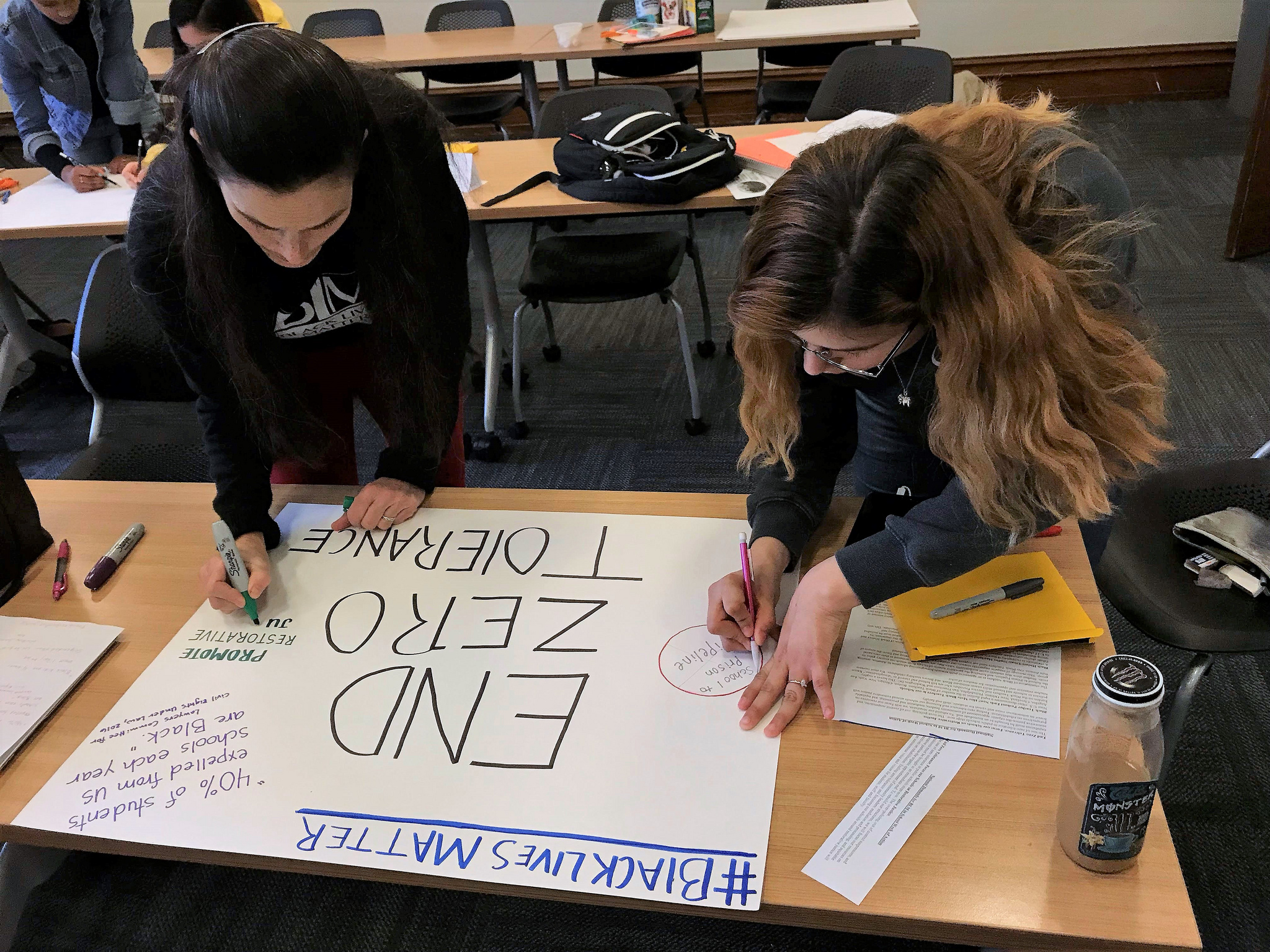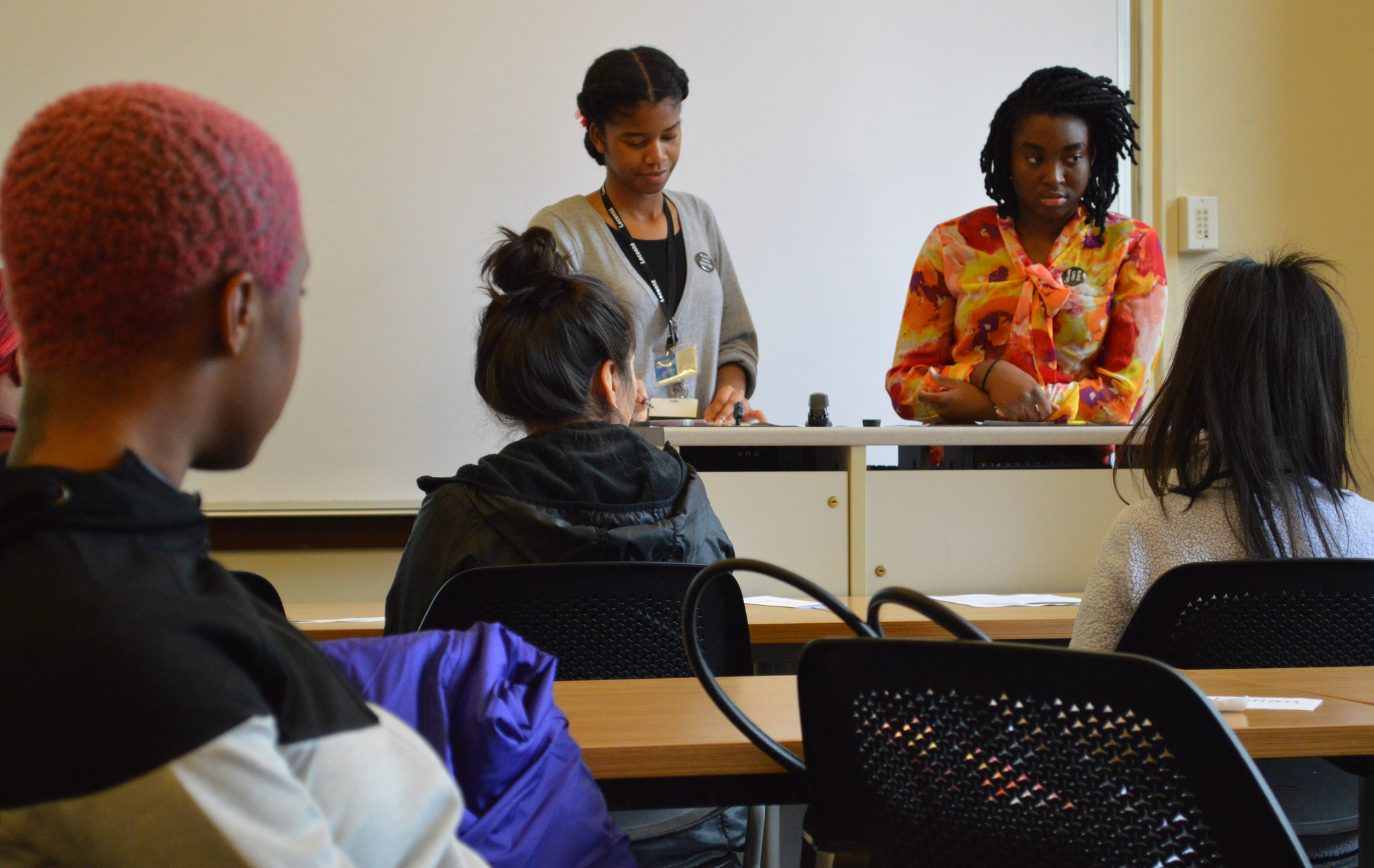Student Led Discussions of the Black Lives Matter Principles and Demands
The first class discussion was led by students Mekdim Tadele, Maria Alvarez, Priscilla Mac Yntyre.
Teacher Jill Weiler and student discussion leaders for the second class, Golden Emokpaire and Sharron-Rose Kisalu.
“There’s more to us than slavery”
— Teaching for Change (@teachingchange) February 7, 2019
Students at Trinity Washington University discussed the #BlackLivesMatter 13 Guiding Principles and 4 National Demands of the @BLMAtSchool week of action.
Student-made artwork will be displayed in the University’s Main Hall Building: pic.twitter.com/Pcr2x4DotF
Students in Jill Weiler's class at Trinity Washington University led a discussion of the 13 principles and 4 demands on Thursday, February 7. Then they made posters to make these principles and demands visible on campus.
The conversations were rich and provocative, with student-facilitators engaging the whole class.
During the discussions of the four demands, the following points were raised:
Several students talked about the dress code and how they were sent home for not having a collar or wearing the wrong shirt. Paris said at her school, zero tolerance applied to some students and not to others: her brother was sent home whenever he was in violation of the dress code, yet when she did not wear her uniform, a school staff member found her a shirt and sent her to class.
In discussing the demand mandating Black/ethnic studies, Golden shared that she came to the US in the 3rd grade and she did not see anyone who looked like her in any of the materials she read, especially, she said, coming from Nigeria. She was so excited in her first semester of college when, for the first time, she read a Nigerian author (Chimamanda Adichie) at school.
Also related to mandating Black studies, Sharron was one of the few students who had had an African American studies (literature) class in high school; however, it was an elective, and she argued that it should be required for all students.
Delaney talked about the fact that the focus of Black history as it is taught in K-12 is always on slavery, and she fears that people look at her and that is all they see instead of the rich history — and many heroic individuals — from which she thrives.
“One month is not enough to learn about the history of your people” -student at Trinity Washington University
— Teaching for Change (@teachingchange) February 7, 2019
We demand Black history and ethnic studies in K-12 Curriculum. #BlackLivesMatterAtSchool @BLMAtSchool #HigherEd






